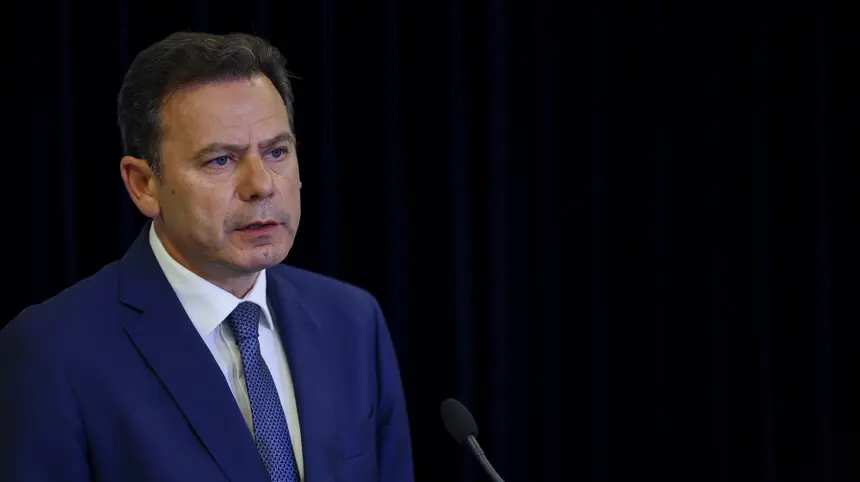Government focused on trying to ensure nationwide blackout doesn’t happen again
Moves are underway in multiple directions to try to secure Portugal’s ‘energetic sovereignty’ following Monday’s nationwide blackout.
While the government sets up an Independent Technical Commission to assess authorities’ reactions and management mechanisms, as well as the resilience of critical infrastructures and services, REN – the entity responsible for electricity and gas transmission – has shut down commercial energy exchanges that habitually take place between Portugal and Spain.
REN director João Faria Conceição explains this is a precautionary move to allow “complete stabilisation of the system”, which is expected to be concluded by midnight tonight.
“We are moving towards a normal situation”, he told journalists yesterday in a wide-ranging interview which highlighted the frailties of the Portuguese system, namely that the country does not have enough power stations capable of ‘black start’ (the repowering of energy from scratch, without any connection to any electrical supply).
To this end, prime minister Luís Montenegro has said the government working towards a situation where at least two more stations on the dams of Baixo Sabor and Alqueva are capable of the autonomous start-up of the country’s electricity system: the theory being that if Portugal had four power stations fully prepared for ‘black start’, a crisis like the one that plunged the country into chaos for all of 12 hours on Monday, could never happen again.
Right now, REN’s director has stressed “there is zero risk” of another blackout, as the electrical system for the time being, is being managed separately from Spain.
“The interconnections between the systems are operational, but there is no commercial exchange of energy”, he reiterated.
Meantime, the exact cause of the blackout is still “not yet known” – albeit the volatility of renewable energies being at the root of a ‘destabilisation’ that brought everything crashing down is very much accepted. In the words of REN’s João Faria Conceição it is “plausible” that the blackout could have been caused by “an excess of renewable energy in the energy system”. To this end, tabloid Correio da Manhã this morning carries a double-page report in which Spain’s director of Operational Services within the Spanish grid has said that solar parks in the south of Spain were producing more energy than required at the time of the blackout. The grid had warned two months ago of risks implicit “due to the excessive production of photovoltaic energy”, explains the paper, hearing from experts within the sector that solar energy is “technically more difficult to control” than other sources of renewable power.
One of the Portuguese government’s decisions in managing this situation has been to request an independent audit by the European Commission into the electrical systems of all the countries affected on Monday (namely Portugal, Spain, France and Morocco)
“We will spare no effort in providing clarifications regarding a serious problem that did not originate in Portugal,” said the PM during the second extraordinary meeting of the Council of Ministers since the blackout – at a point where, predictably, opposition parties are trying to find fault in the government’s management of the crisis.
The Independent Technical Commission’s brief will be to “assess the reaction and management mechanisms for this crisis, the resilience and recovery of the electrical system, the resilience of critical infrastructures and services and also the functioning of the civil protection, communications and health systems,” he added.
The commission will be composed of seven experts: one in the energy sector, one in the communications networks and systems sector, one in the civil protection sector, another in the health sector and three more to be appointed by parliament. Due however to looming legislative elections, PM Montenegro said that the commission could only start work when parliament reconvenes after the elections on May 18, and the swearing in of a new government.
“We will have time,” he said. “This is not an Independent Technical Commission to produce quick results, in a hurry. It is an Independent Technical Commission to deepen and evaluate reaction mechanisms, crisis management, recovery of the electrical system, infrastructure resilience, and critical services.” The government is “very committed to drawing all conclusions about the causes and responses” to what is happening, expressing full availability “to help European bodies in the audit process” that the country has requested. ND




















